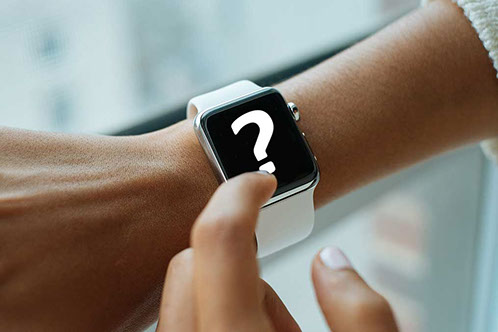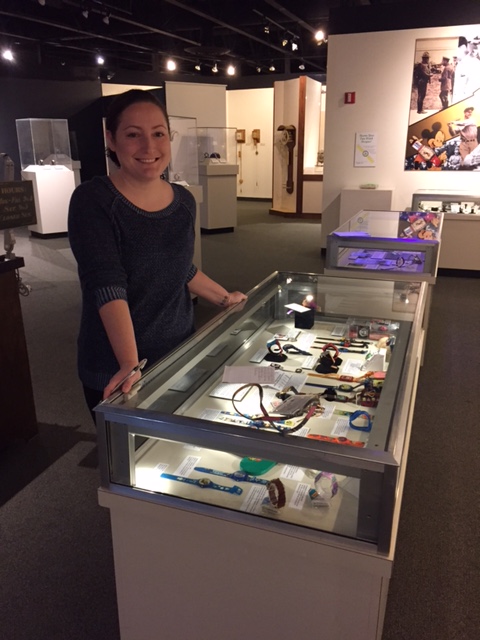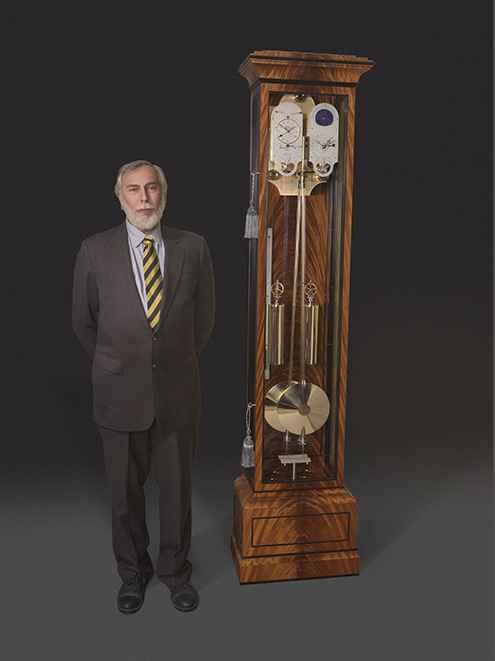
It's time again to ask professionals in the field of horology their opinions on whether smartwatches are actually watches. In our first installment of the series we asked Noel Poirier, director of the National Watch and Clock Museum, Columbia, PA; Roland Murphy, owner of RGM Watch Co. in Lititz, PA; and Adam Harris, lecturer and wristwatch curator at the National Watch and Clock Museum. In our second installment we asked Pierre Halimi, general manager of Montres Journe America. We now ask two individuals from different U.S. coasts for their thoughts on where smartwatches stand in the hallowed halls of horology.

Curator of Collections at the National Watch and Clock Museum Kim Jovinelli received her undergraduate degree in archaeology from Millersville University, Millersville, PA, and a graduate degree from The University of the Arts, Philadelphia, PA, with a concentration in collections care and management. Jovinelli studies and cares for dozens of clocks and watches a week and is responsible for the Museum’s collection of more than 13,000 pieces. Her hands-on experience of horological history gives weight to her opinion on whether a smartwatch is really a watch.
“Is a smartwatch a watch? Well, if we’re being technical, sure it is. It’s a wearable timepiece. Granted, I do not believe that is what its main function is or was ever intended to be, which is where we find our gray area. Sure it can tell you the time at a glance, but primarily I believe its purpose is just to be a companion piece to the ever-growing smartphone industry. Along with telling you the time, it can send and receive messages and emails, keep track of heart rate and steps, and even let you surf the Web. The smartwatch is the future; just ask Dick Tracy. They’ve gotten more and more stylized to look like what we would think of as a “watch,” but telling time is still not their main function, which seems to be the largest argument against them being a watch.
“My feeling is that there will always be a place for the traditional watch. Smartwatches are like any form of modern technology, dependent on its programming, which gets updated and tweaked as said technology advances. This requires buying newer models, which cost money. Investing in a good mechanical watch will never go out of style. So, yes, a smartwatch is, by the simplest definition, a watch, but it will not replace those traditional mechanical timepieces we wear on our wrists today. It’s a niche, a novelty, a showpiece, and a tool to assist us in our everyday lives.”

David Walter is a horological one-two punch. Not only is he an accomplished and acknowledged clockmaker but also a professional watchmaker. Training at a very young age, Walter has been recognized nine times by the National Association of Watch and Clock Collectors for his clock-making accomplishments, and he has worked for prestigious watchmaking companies in London and Europe, including Omega Watch Co.
As part of a feature, I asked Walter his thoughts on the smartwatch revolution:
Well....... the new digital watches are not all that new; a similar thing happened in the 1970s. I don’t own a smartwatch but I do see their appeal. They are still throwaway items, but mechanical watches are not and can be serviced in the future. I think the name smartwatch is misleading, because they are far more than a timekeeper; a wrist minicomputer might be a better name. If these watches are smart, are mechanical watches dumb? I don’t think so! Smartwatches have a time display, which makes them a watch. I suggest they should be called digital timekeepers.